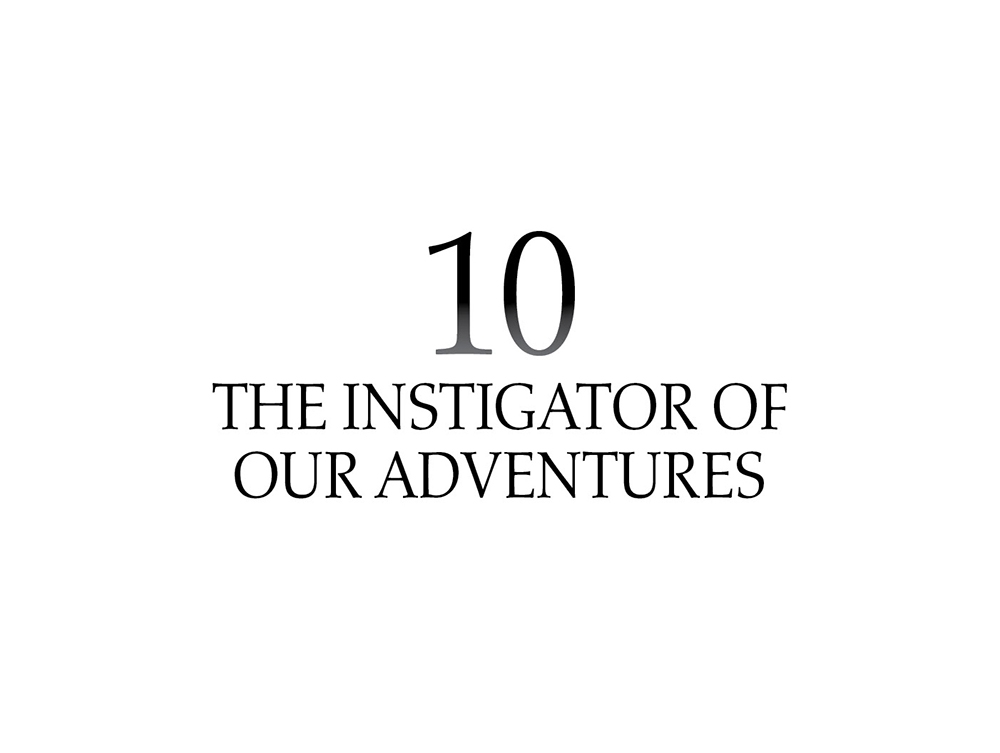
Clive’s success might suggest he was an excellent student. “Not so,” Clive concedes, “I was average, at best.”
While his teachers lectured on the fine points of transposing fractions or transient verbs, Clive would be “staring out the window, lost in another time, manning a cannon on John Paul Jones’s ship, the Bonhomme Richard, charging up Cemetery Ridge with Pickett’s division, or reversing the tide at Little Big Horn, saving Custer and his 7th Calvary. When called upon to recite, I would look at the floor and mutter an answer so out of context that the teacher thought I wandered into her class by mistake.”
His report cards were filled mostly with Cs and Ds, and Clive’s teachers would invariably tack on the admonishment familiar to generations of perceived underachievers: “Clive seems bright enough, but he doesn’t apply himself.”
In their senior year, Clive and his friends discovered they could choose several electives. The boys immediately signed up for typing and home economics, believing the classes would provide an opportunity to meet girls. Clive learned how to type, a skill that would ultimately prove extremely useful, but chances for romance vanished when the girls became annoyed because the boys’ cakes consistently rose higher than theirs.
With his afternoons and weekends occupied by a job or wrenching on his hot rod, Clive had little time to pursue girls. “Why,” he says, “would I spend money on a date when I needed a new carburetor? I did have a steady girlfriend in grammar school, but we split up in high school. Years later, I received a letter from her. She was living in Tucson and wrote. ‘You probably don’t remember me, my name’s Joy Marshall.’ I wrote her back: ‘You have to be kidding. How could I ever forget the first girl I ever kissed?’”
Organized sports were also out of the question, but Clive taught himself to play golf. When his grandfather managed the resort at Lake Okoboji in Iowa, Clive’s mother took lessons and her dusty bag of antique clubs hung in the corner of the Cussler’s garage. Clive borrowed Byron Nelson’s book, Winning Golf, from the library, dusted the spider webs off his mother’s golf bag, and spent his evenings in the backyard working on his short game.
Felix Dupuy’s family belonged to the posh San Gabriel Country Club. The two boys would often play together and Dupuy, impressed with his friend’s performance on the fairways, convinced him to compete in one of the club’s tournaments. On the day of the event, Clive, who now owned a respectable set of clubs, arrived in his hot rod, wearing his customary costume: a leather jacket, white T-shirt, and jeans with the cuffs rolled up. He recalls the day with obvious satisfaction. “I went out on the course, shot a sixty-nine and shocked the hell out of the stuffy country club crowd.”
Students entering their freshman year at Alhambra High School were allocated 100 merits. During the next three years, the number would go up or down, determined by a convoluted formula based on grades, attendance, and behavior. Graduation required a minimum of seventy merits. At the end of his freshman year, Clive was comfortably in the black with 116. By the time he was a senior, his score had plummeted to the low forties. To make up for the deficit, Clive was required to stay after school for a month and work with the groundskeeper, mowing, trimming hedges, and edging “miles of sidewalk with that miserable tool with the teeth.”
Clive’s quick wit and personality made up for his less than stellar performance in the classroom. “Clive was usually the instigator of our adventures,” Felix Dupuy says. “He never seemed to run out of new ideas, and always seemed to be living a little closer to the edge than the rest of us. Clive was an only child, and I always felt he got away with things my parents would have really come down on me for.”
Dick Klein agrees with Dupuy’s assessment. “Clive has always been a real character, and ever since I’ve known him, he has always been coming up with some new scheme.” Klein remembers a conversation with his father: “For some reason, Dad and I ended up discussing the qualities, positive and negative, of my friends. When Clive’s name came up, my father told me, ‘Of all the guys you hang around with, that Cussler kid knows how to work the system. He will probably be the guy who makes the most money without having to do a lot of hard work.’”
Under Clive’s picture in his high school yearbook, it simply states, “College Prep.” However, leafing through the pages of the 1949 Alhambran, Clive, in his leather jacket, white T-shirt and cuffed jeans, slouches nonchalantly among the members of the Senior Council, Spanish Club, German Club, Latin Club, Varsity Track Team, Scholarship Society, and Chemistry Team. One of Clive’s friends happened to be the yearbook photographer.
On June 16, 1949, Clive Eric Cussler strode across the stage in the Alhambra High School auditorium and was awarded his diploma. When he and parents got home, Eric presented him with a wristwatch, while Amy, close to tears, beamed proudly. Later that evening, Clive and several friends, “drove around, just goofing off. We stopped at a drive-in, had a hamburger, and that was about the extent of our celebration. I think we were all just glad to be finished with high school.”